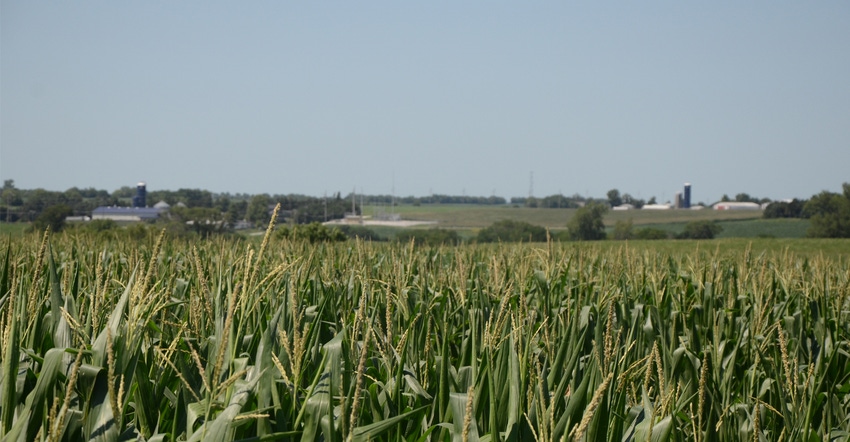June 12, 2020

The agricultural land market came into 2020 with a glimmer of optimism until COVID-19 slammed into people's lives. Catastrophic disruptions in the world's economy have reached into U.S. agriculture to play havoc with marketing chains.
As a result, the land market hit the pause button as buyers and sellers slowed activity. Opposing factors will be pushing and pulling land values in the coming months to decide what's next for the land market.
Before COVID-19, U.S. agriculture was gaining some momentum coming off a difficult year in many sectors. Trade deals were coming into place, and commodity prices had a hint of getting better.
Related: Complete coronavirus coverage
"The market for good cropland was stable to slightly stronger in many areas as interest rates remained low and demand was fairly strong for the low supply of land for sale," said Randy Dickhut, senior vice president of real estate operations for Farmers National Co. "Recreational land had good demand as the general economy and the overall wealth of individuals was strong."
Disruptions in ag
After COVID-19 struck, disruptions affected most aspects of agriculture. Dairy producers saw an immediate drop in fluid milk consumption when schools closed. Livestock producers who sold directly to restaurants or farmers markets saw their prime marketing channel dry up overnight.
The shutdown of meat processing facilities severely affected consumers, and that impact stretched all the way back to the farm. Corn producers saw the bottom drop out of ethanol usage at the institution of stay-at-home rules.
Farmers National Co. land auctions continued during March and April, albeit with social distancing procedures in place. What were to be public auctions became stay-in-your-pickup-in-the parking-lot live auctions, bid sales or online auctions. Sale outcomes varied by region and property.
The land market became more cautious in the areas with dairy, livestock and ethanol as these industries endured mounting bad news. In other areas, land sale prices were stable as demand for good quality land was more than adequate for the amount that did come up for sale.
"Real estate sales activity at Farmers National Co. was strong during the first seven months of its fiscal year despite an industrywide slowdown," Dickhut said. "Sales volume was up 6% to 8% compared to each of the past three years. Sellers and buyers continue to actively call Farmers National Co. agents as real estate business for the company continues during this uncertain period."
What's next?
What is coming next for the land market?
Various factors that can affect land values are pulling in opposite directions. Positive influences include the continued low supply of good land for sale and historically low interest rates. For many, investing in ag land will be a safe haven for the current times, a long-term hedge or the means to invest in the sustainability of the food supply.
The average land buyer who has resources may invest in recreational land for a place in the country. Farmers will remain buyers of land if they have the financial standing to do so.
Challenges that could put pressure on land values include the overriding potential for depressed farm incomes and the further decline of working capital for producers. Will lower farm incomes overcome the low interest environment to put pressure on farmland values? Will farm finances be helped enough by the additional infusion of federal cash payments to producers to maintain financial stability? Will there be more land come onto the market because of financial pressures that could tip the supply and demand equation?
"It is too soon to accurately answer what's next for the land market except that agricultural land will continue to be bought and sold," Dickhut said. "Land passing to the next generation is a constant that remains in play no matter what. Decisions made by inheritors of land, producers, lenders, legislators and investors will come together over the coming months to provide the answer to what's next for land values."
Source: Farmers National Co., which is solely responsible for the information provided and is wholly owned by the source. Informa Business Media and all its subsidiaries are not responsible for any of the content contained in this information asset.
Read more about:
Covid 19You May Also Like




